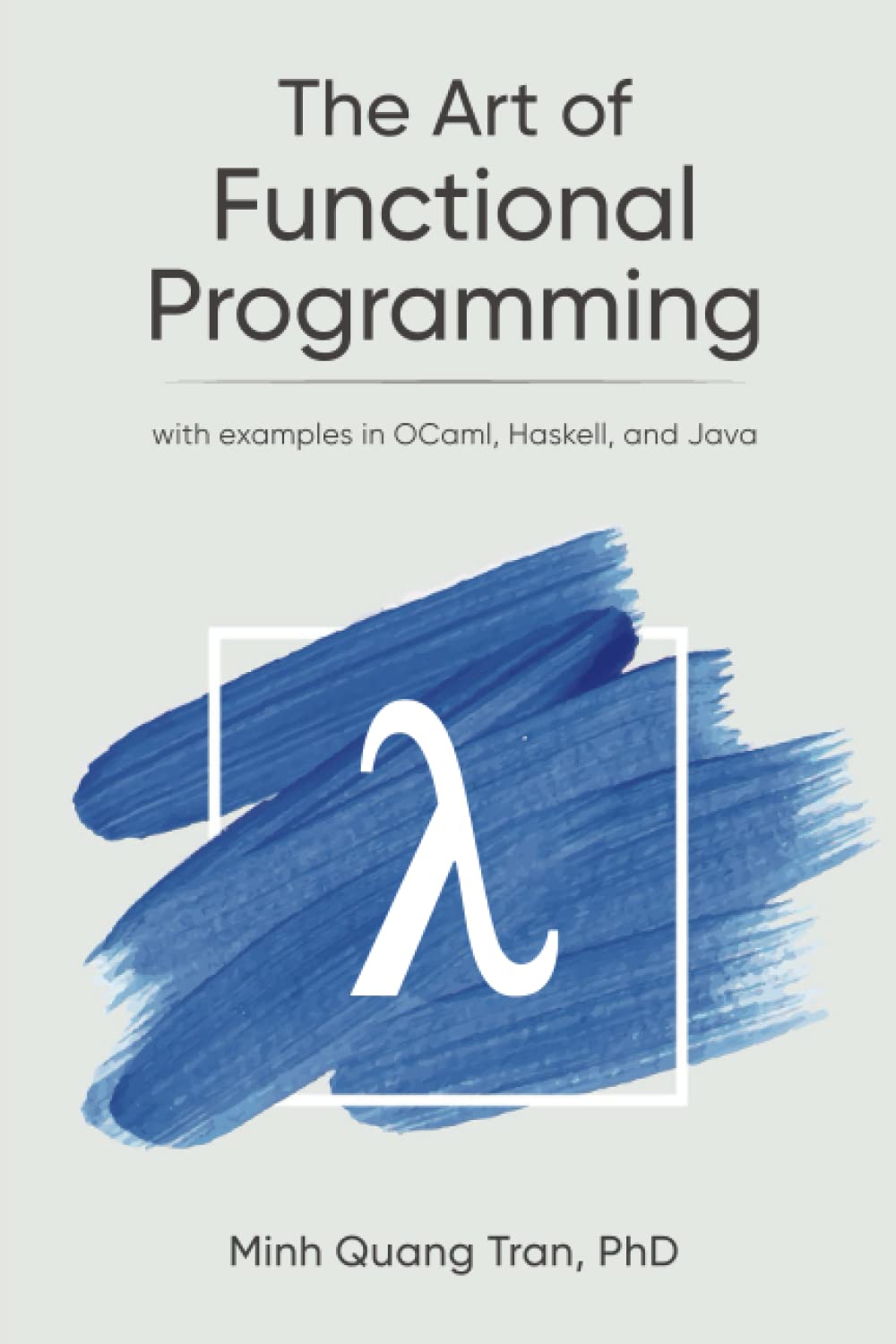Product desciption
The Art Of Functional Programming Minh Quang Tran by Minh Quang Tran 9783000735349, 3000735348 instant download after payment.
Welcome to The Art of Functional Programming book!
Functional programming is a powerful and elegant programming paradigm. Initially only popular among university researchers, it’s gained much traction in the software industry in the last few years. From big companies to start-ups, engineers and managers have realized that functional programming excels at abstraction and composition. Functional programming allows for highly concise solutions with increased safety. This has led to rising demand for software engineers with functional programming skills. This book will help you move your programming skills to the next level.
There are tons of programming languages, frameworks, and tools out there - with many more coming in the future. The only way to stay ahead of the game in this vast and quickly changing software industry is to master the fundamentals and principles that cut across programming languages, frameworks, and tools. In the case of functional programming, learning to adopt the functional way of solving problems is much more productive than memorizing how to write functional code in a particular language. This book teaches this functional way of thinking. We’ll also learn many fundamental techniques from programming languages, such as parsing, compilation, and type checking.
We’ll also look at examples and exercises that are typically encountered in a programmer’s day-to-day job. Furthermore, an entire chapter is dedicated to applying what we’ve learned to real-world scenarios. In particular, we’ll use functional programming to process collections of data for an e-commerce application and handle the JSON datatype.
Here is the summary of the chapters in this book:
* In Chapter 1: Introduction, we’ll start the book with an introduction to functional programming. In particular, we’ll see how it can overcome some of the inherent weaknesses of the imperative programming paradigm. We’ll also discuss why functional programming matters to any software engineer.
* In Chapter 2: Expressions -- The Building Blocks of Functional Programs, we examine expressions and how to build complex expressions from simpler ones. Three aspects of expressions - syntax, types, and semantics- will be covered. Along the way, we’ll gain a much deeper understanding of how programming languages work, including parsing, type checking, interpretation, and compilation.
* In Chapter 3: Building Abstractions with Functions, we’ll get to know lambda calculus—a mathematical model serving as the foundation of all functional programming languages. We’ll learn how to capture computation patterns as functions. Finally, we’ll discuss various techniques for working with functions such as currying, recursion, and higher-order functions.
* In Chapter 4: Complex Data Types, we’ll focus on the complex data types typically found in functional programming languages, such as tuples and lists. Furthermore, we’ll use algebraic data types to represent hierarchical data, and pattern matching to extract data from complex data types.
* In Chapter 5: Common Computation Patterns, we’ll dive into some of the most common computation patterns, such as map, filter, fold, and zip. These functions capture highly general computation patterns on lists and other data structures that can be reused to formulate many other functions.
* In Chapter 6: Dataflow Programming with Functions, we’ll go over dataflow programming, a programming paradigm that emphasizes composing programs from existing components. We’ll learn how functional programming allows us to do dataflow programming elegantly and reap all its benefits.
* In Chapter 7: Applying Functional Programming to Various Domains, we’ll apply what we've learned to process collections of data commonly found in mobile and web applications and backend services. Furthermore, we’ll use functional programming to represent and handle JSON.


